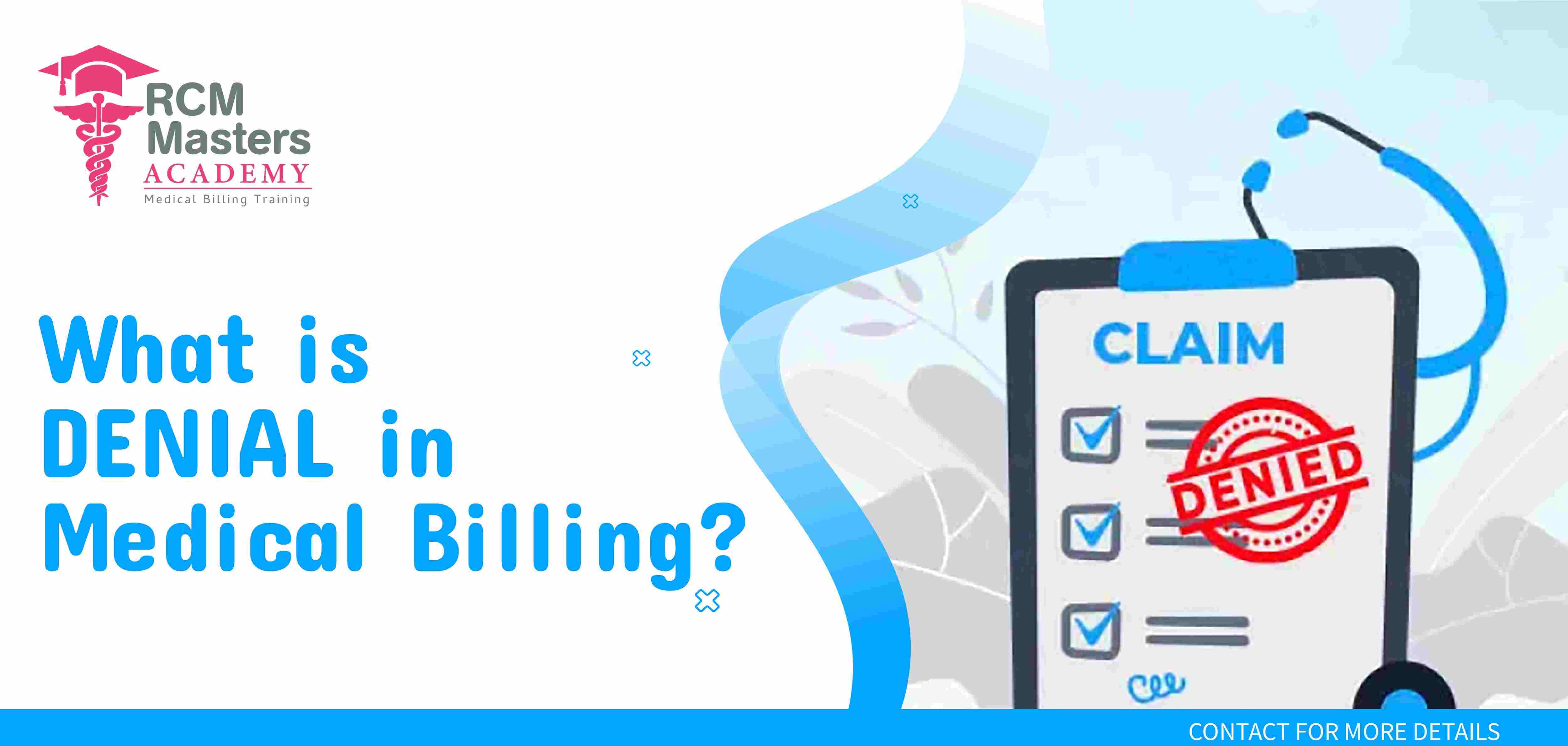 info@rcmmastersacademy.com
info@rcmmastersacademy.com

Denial in medical billing refers to the rejection of a claim for reimbursement by a healthcare provider or insurance company. Denials can occur for many reasons, ranging from incorrect patient information to coding errors, and can result in significant financial losses for healthcare providers and patients.
The medical billing process is complex, involving many steps and stakeholders, including healthcare providers, insurance companies, and patients. At each step, errors can occur that can lead to a denial of a claim. Some of the most common reasons for claim denials include:
1. Incorrect patient information: This can include errors in patient names, addresses, insurance policy numbers, or other personal information. Any inaccuracies can lead to a denial of a claim.
2. Incomplete documentation: Healthcare providers must provide thorough and accurate documentation of all services provided to a patient. Failure to do so can result in a denial of a claim.
3. Coding errors: Medical billing codes are used to describe the services provided to a patient. If the codes are incorrect or incomplete, a claim may be denied.
4. Non-covered services: Insurance policies may not cover certain services or procedures, such as elective cosmetic surgery. If a patient receives a non-covered service, the claim may be denied.
5. Pre-authorization requirements: Some insurance policies require pre-authorization for certain procedures or services. If a provider fails to obtain pre-authorization, a claim may be denied.
Denials can have significant financial consequences for healthcare providers and patients. Healthcare providers may lose revenue and spend significant time and resources appealing denials. Patients may be responsible for paying out-of-pocket for services that were denied by insurance companies.
To prevent denials, healthcare providers must ensure that they have accurate patient information, provide thorough documentation, and use correct billing codes. They should also be familiar with their patients' insurance policies and any pre-authorization requirements.
If a claim is denied, healthcare providers should review the reason for the denial and take steps to correct any errors. This may involve appealing the denial, providing additional documentation, or correcting coding errors. Healthcare providers may also need to communicate with patients to resolve any issues with insurance coverage or out-of-pocket expenses.
In conclusion, denial in medical billing is a common issue that can result in financial losses for healthcare providers and patients. Denials can occur for many reasons, including incorrect patient information, incomplete documentation, coding errors, non-covered services, and pre-authorization requirements. Healthcare providers can take steps to prevent denials, such as ensuring accurate patient information, providing thorough documentation, and using correct billing codes. If a claim is denied, healthcare providers should review the reason for the denial and take steps to correct any errors. By doing so, healthcare providers can reduce the financial impact of denials and ensure that patients receive the care they need.
You can enroll for our Online Medical Billing Training here: